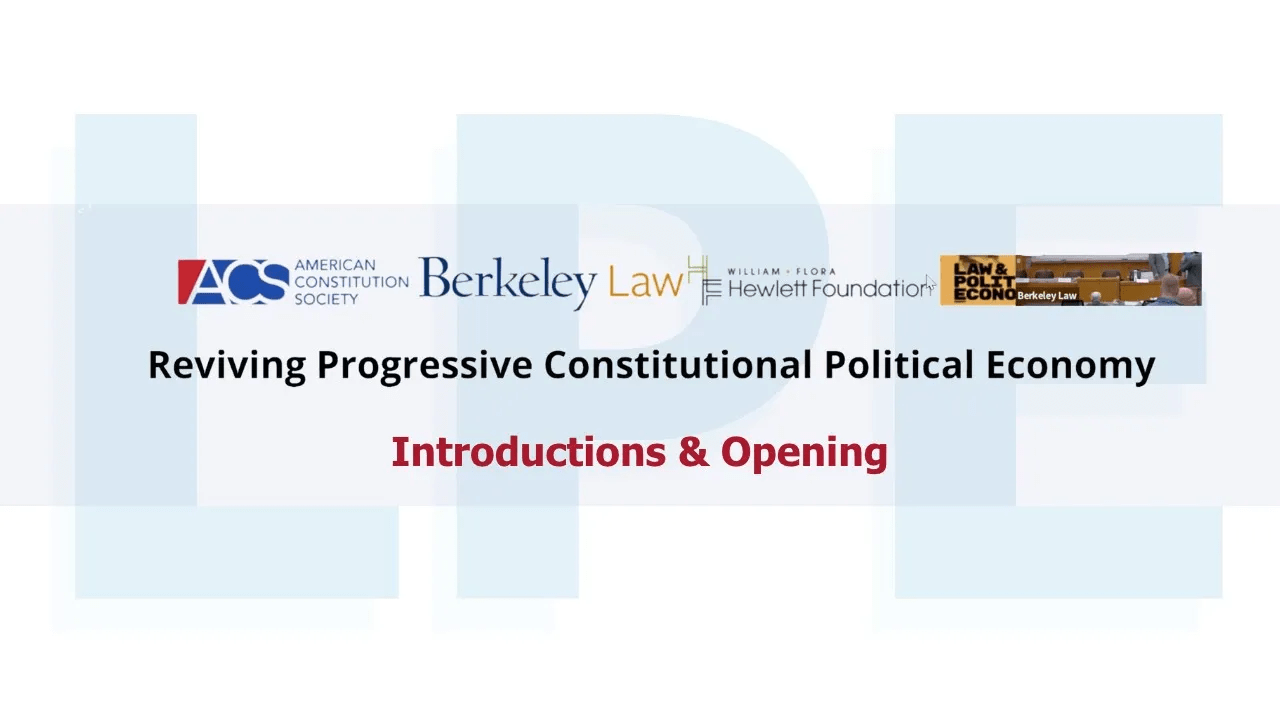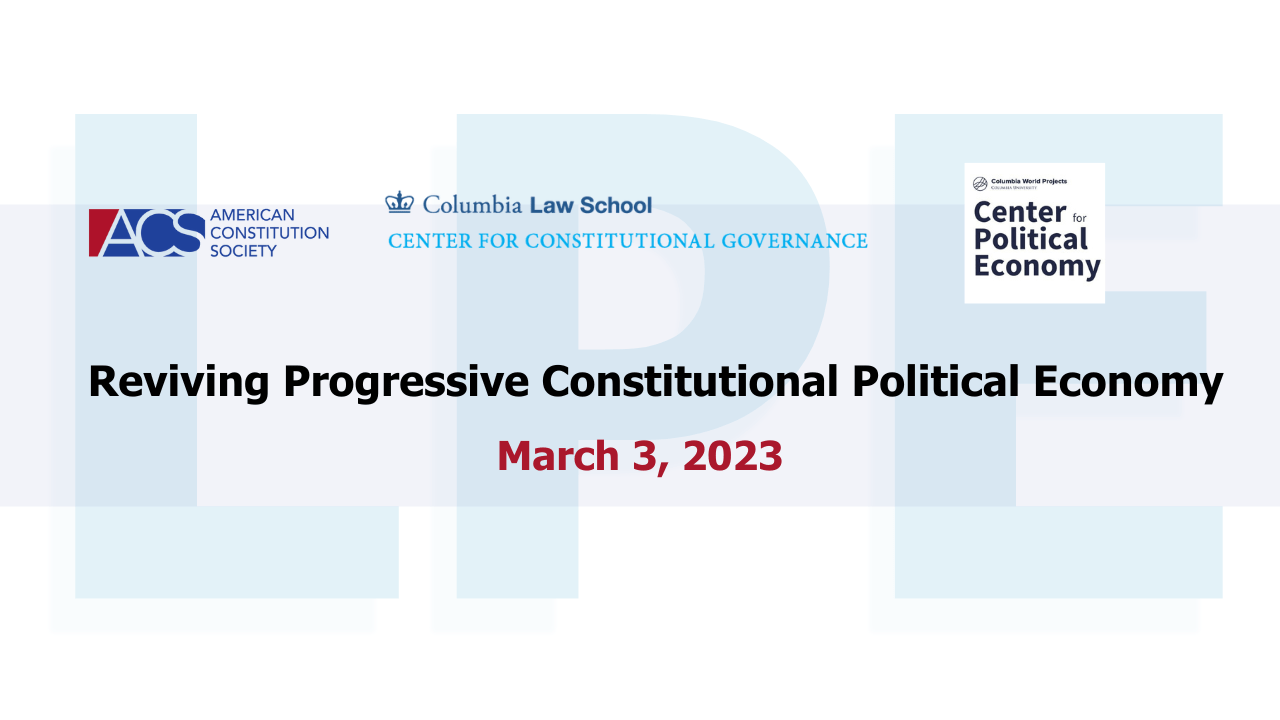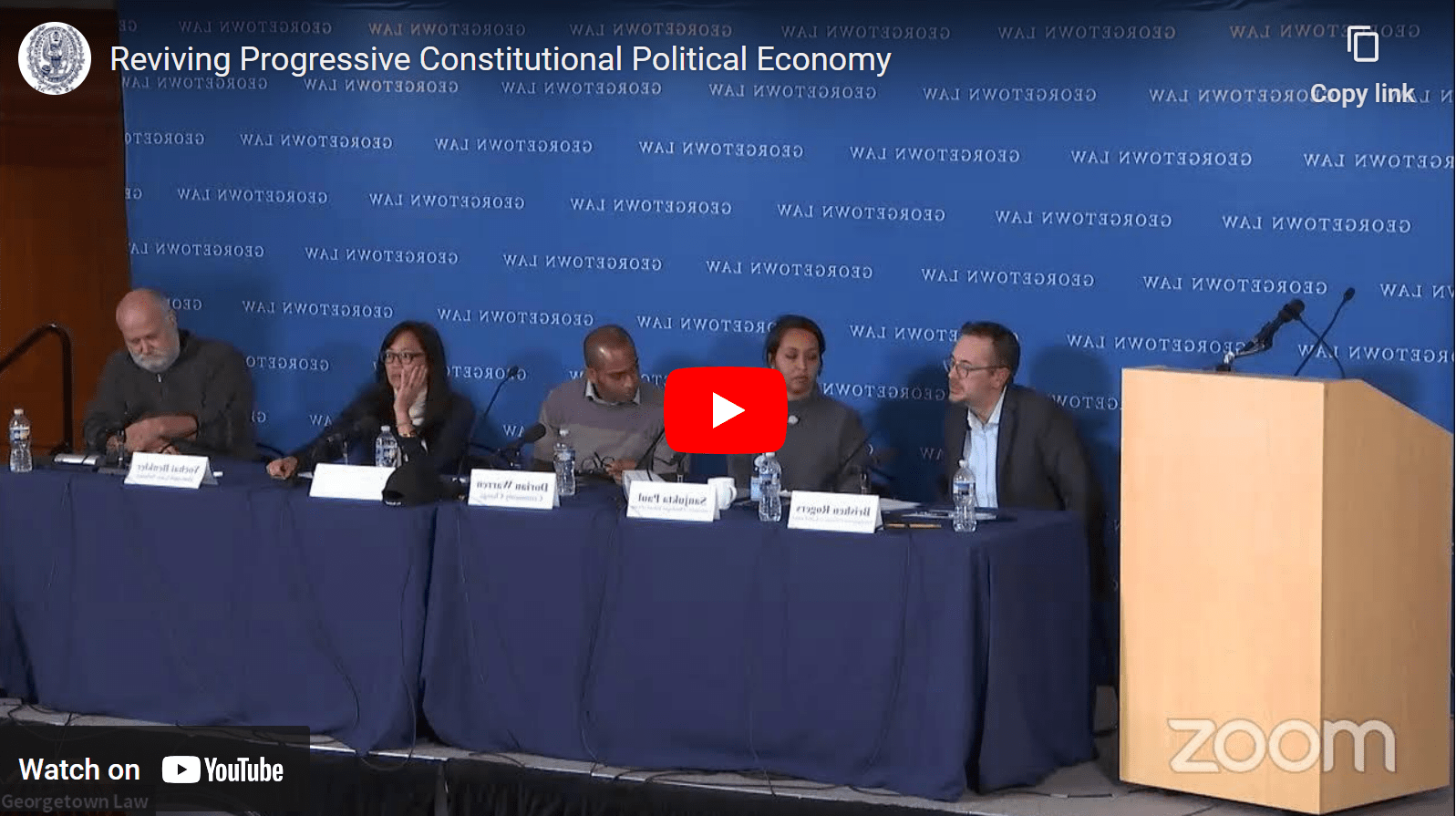Law and Political Economy
Overview
ACS believes that the law can and should be a force to improve the lives of all people.
Powerful interest groups, rent seekers, and the economically and politically dominant, however, have long had the opportunity to influence and shape laws in a way that entrenches their power. Law and Political Economy (LPE) recognizes the inextricable link between politics and the economic power. Even though many laws may appear neutral, they increase the power of those at the top of our economic system and disadvantage historically marginalized groups, including racial, religious, and sexual minorities, women, the working class, and the economically insecure.
LPE seeks to expose and dismantle the systems that concentrate too much economic and political power in too few hands, similar to other critical legal traditions including critical legal theory, critical race theory, and feminist legal theory. In collaboration with LPE thinkers, scholars, and activists, ACS is engaged in the fight over our nation’s political economy—the role of the executive, legislative, and judicial branches, the extent and reach of redistribution, and the threat that concentrated private wealth and power pose to democracy.
Media
Video
Reviving Progressive Constitutional Political Economy Conference at Berkeley Law
The Constitution and Political Economy Conference at Columbia Law School
Reviving Progressive Constitutional Political Economy Conference at Georgetown University Law Center
For most of our history, when Americans argued and fought about how to organize our political economy—the role of government, the extent and reach of redistribution, the tension between democracy and concentrated private wealth and power—advocates on all sides of these questions made constitutional arguments. For generations, a main current in American constitutional thought held that oligarchy—too much economic and political power concentrated in too few hands—threatens the “Republican form of government” at the heart of the Constitution.
The main arenas for all these constitutional arguments were the political branches and the public sphere. Today, the dominant mode of constitutional argument is different: it is far more focused on—and far more deferential to—the Supreme Court, which is now busy reviving the reactionary, anti-redistributive outlook of the Lochner Era.
Spurred by the publication of Joseph Fishkin and William E. Forbath’s book The Anti-Oligarchy Constitution: Reconstructing the Economic Foundations of American Democracy (Harvard 2022), this conference brings together cutting-edge thinkers and scholars working in a variety of areas to explore what it would mean to put constitutional arguments at the core of Law & Political Economy (LPE), and to return political economy arguments to the heart of constitutional politics.
This conference explores the provocative question: what if we revived this progressive tradition of constitutional political economy? What work could anti-oligarchy principles and arguments do in our current moment? How can legislators, executive branch officials, and ordinary Americans draw on these traditions to challenge and counter, check and balance an out-of-control Supreme Court?
Schedule of Events
Introductions
9:30 – 9:45 a.m.
Panel I: Is it a Good Idea to Constitutionalize Political Economy?
9:45 – 11:30 a.m.
E.J. Dionne, Jr., Distinguished University Professor, Georgetown University
Willy Forbath, Lloyd M. Bentsen Chair in Law; Associate Dean for Research, UT Austin Law
Caroline Frederickson, Distinguished Visitor from Practice, Georgetown University Law Center
Michael Kazin, Professor of History, Georgetown University
Sabeel Rahman, Associate Professor of Law, Brooklyn Law School
Bertrall Ross, Justice Thurgood Marshall Distinguished Professor of Law; Director, Karsh Center for Law and Democracy, UVA Law
Coffee Break
11:30 – 11:45 a.m.
Panel II: Legislative & Administrative Constitutional Political Economy
11:45 a.m. – 1:30 p.m.
Josh Chafetz, Professor of Law, Georgetown University Law Center
Ryan Doerfler, Professor of Law, Harvard Law School
Victoria Nourse, Ralph V. Whitworth Professor in Law, Georgetown University Law Center
Ganesh Sitaraman, New York Alumni Chancellor's Chair in Law; Director, Program in Law and Government, Vanderbilt Law School
Lunch
1:30 – 2:15 p.m.
Keynote Speech
2:15 – 2:45 p.m.
Jamie Raskin, U.S. Representative, Maryland's 8th Congressional District
Panel III: New Directions in Constitutional Political Economy
3:00 – 4:45 p.m.
Yochai Benkler, Jack N. and Lillian R. Berkman Professor for Entrepreneurial Legal Studies; Faculty Co-Director, Berkman Klein Center for Internet and Society, Harvard Law School
Sanjukta Paul, Professor of Law, Michigan Law
Brishen Rogers, Professor of Law, Georgetown University Law Center
Dorian Warren, President, Community Change
Felicia Wong, President and CEO, Roosevelt Institute



